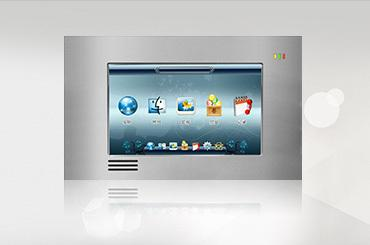Big data, artificial intelligence and other technologies cross-border integration, smart home from 2012 to 2018, the entire smart home industry has undergone tremendous changes. When the reporter recently visited upstream and downstream companies related to smart security, he learned about the current status and development trend of the industry. Major changes mainly reflect the following aspects.
First, the combination of digital intercom and smart home. In the foreseeable future, building intercom will add more smart home functions, which will integrate security, home appliance control, information services, and entertainment, so that the building intercom system will undergo a qualitative change.
Second, "voice assistants" will become the norm. Using mobile phones, tablets and other terminals to input and control smart home devices is slightly cumbersome and redundant. In the future, voice assistants will become the norm in smart home products. Like software devices such as Apple’s siri and interactive robot boy Xiaobai, they will realize product intelligence through “voice”. Therefore, in the future, when you walk into your home, you can complete tasks such as turning on the air conditioner, closing the curtains, and putting hot water in the bathroom through voice, and you can start your life easily.

Third, personalized service becomes a selling point. In the future, personalized services will meet individual specific usage habits and preferences, and provide users with matching service content and service time.
Fourth, the "hardware + service" model will become dominant. The future profit model is no longer dependent on single products. In the future where things are connected, the "hardware + service" model will become dominant, which means that the sale of smart hardware is only the starting point, and subsequent services are the protagonist. This includes embedding APP applications, building home entrances, collecting big data, and looking for opportunities to transfer data Realize with traffic and so on.
Fifth, industrial cooperation has become a trend. Win-win cooperation is becoming a consensus, among which the formation of product alliances has become the main form of cooperation. The goal of the industry alliance is to unite industry resources, formulate unified standards, and promote the interconnection of smart home services. At present, leading companies in domestic vertical industries are also actively convening companies from all sectors of the industry to form alliances and release technical standards.
Sixth, standardization is the only way. Technically, the challenge for smart home construction is not equipment or practical issues, but standards and protocol issues, which directly hinder the interconnection between different devices. Therefore, standardization has become the only way to promote the development of my country's smart home industry. Under the background that the unified industry standard for smart home is not yet mature, major manufacturers and related organizations have participated in the formulation of interface standards and data transmission protocols for smart home related devices. Some standards for smart homes have been introduced. The development of a series of standardization work will provide an open standardization platform for the development of smart homes in my country and point out the correct development direction of the smart home research field.
Seven system intelligence is the ultimate goal. In the future, smart homes will continue to develop towards intelligence. The systematic realization of intelligence is the result of further data exchange and interaction across products. Different products can not only exchange data, but also convert this into active behavior, without the need for user intervention.